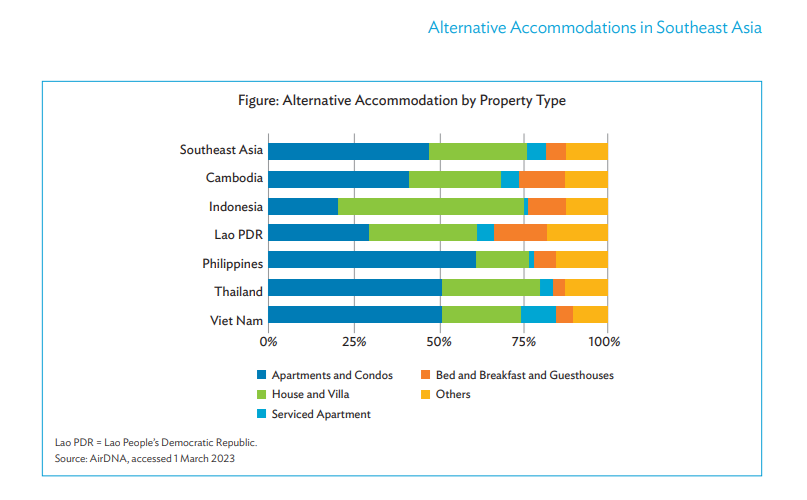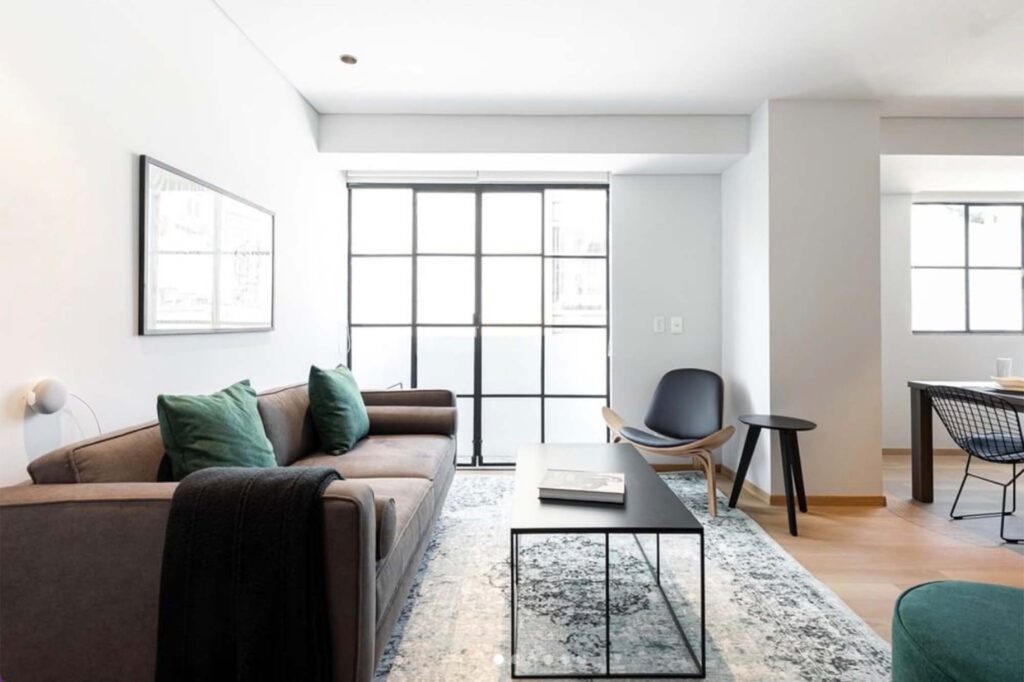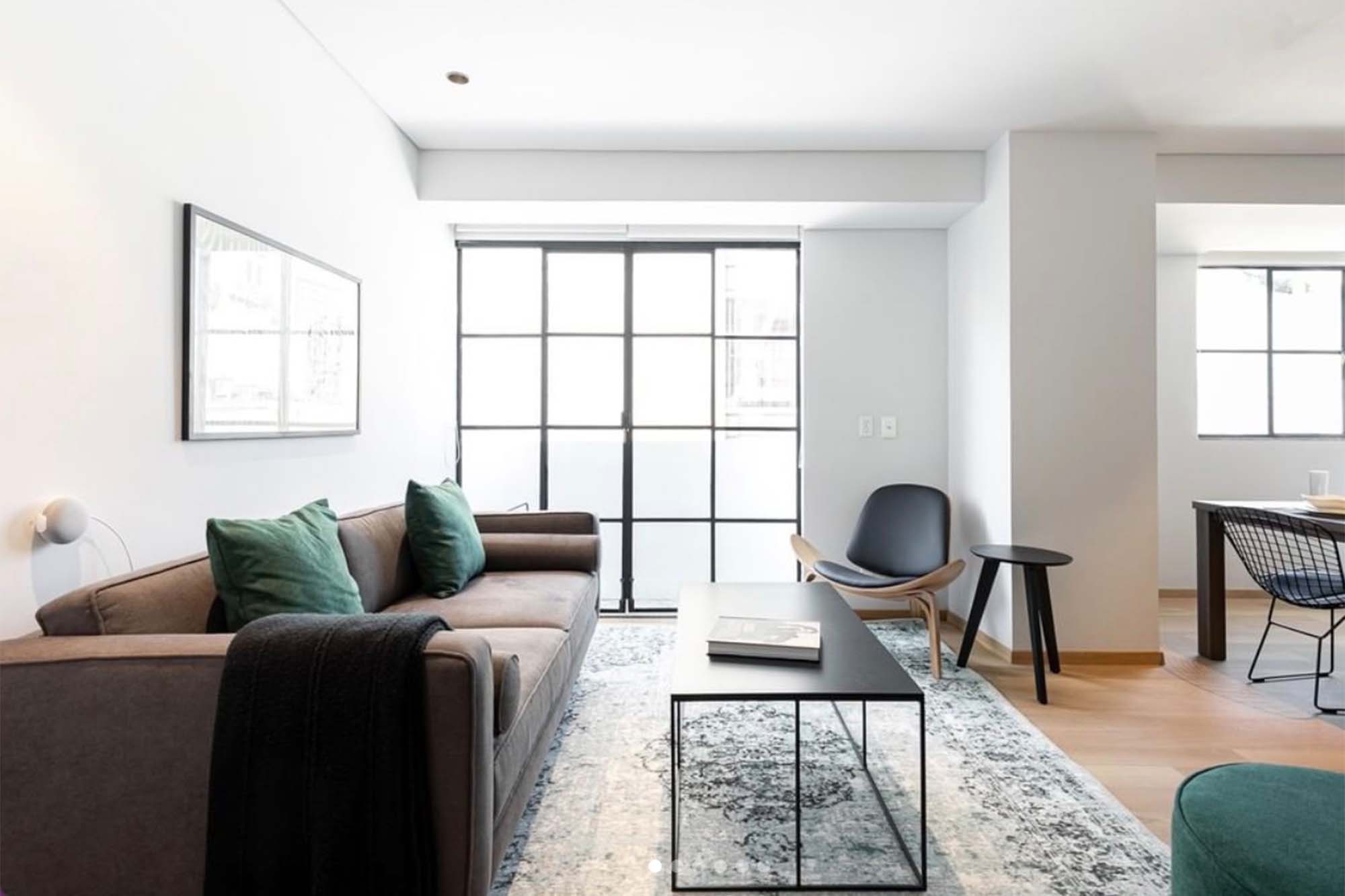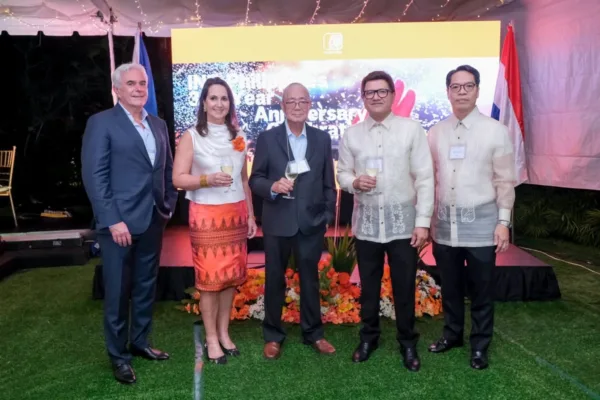A report from the Asian Development Bank (ADB) entitled “Alternative Accommodations in Southeast Asia” revealed that there is now a need for Southeast Asian nations like the Philippines to enhance and legitimize the governance of substitute lodging options while streamlining online registration procedures and licensing standards for this expanding industry.

These suggestions were included in the report from the multilateral lender, which examined non-hotel lodging options or alternatives that are frequently connected to “for-profit internet platforms” like Airbnb, Booking.com, as well as other comparable online marketplaces in Southeast Asian nations like Cambodia, Indonesia, Lao People’s Democratic Republic, Thailand, Vietnam, and the Philippines.
To help destinations better manage this quickly expanding economic activity, the ADB also explained that “legally defining alternative accommodations and implementing online registration systems would lessen regulatory uncertainty among alternative accommodations property owners.”
The report stated that although homestays, guesthouses, and apartment rentals now account for 45 to 55 percent of all rooms in the six Southeast Asian countries examined, the regulations are still somewhat lax.

IMAGE CREDIT: https://portico.travel/
According to the ADB, the phrase “non-hotel accommodation” in the Philippines has definitions for some but not all types of lodging, including homestays, apartment hotels, home-sharing, and other comparable facilities.
The benefits of alternative lodging
ADB’s research, which used data from AirDNA, noted that there were 63,900 alternative accommodation listings booked in the Philippines last year, generating about US$221 million in total income. The benefits of alternative lodging include jobs, less economic leakage because lodging revenue is typically reinvested locally, a rise in visitor arrivals, and a diversity of source markets.
Alternative accommodations, according to the ADB, can present problems if they are not properly managed and regulated. These problems include higher residential housing costs, strain on the local infrastructure, such as the water supply, waste management systems, and transportation, and loss of government revenue due to license fees and taxes that are not paid.
The ability and willingness of the private sector to register its properties would be encouraged, according to the ADB, by providing clear guidelines for substitute lodgings and putting in place easy online registration mechanisms.
According to the ADB, “registration gives the government the basic information needed to manage the supply of accommodations and understand supporting public infrastructure and service needs.”
In order to increase regulatory compliance, it was also said that increasing government enforcement capabilities, reducing the number of regulatory bodies, and establishing alliances between the public and private sectors would be crucial.
Furthermore, it stated that in order to provide high-quality regulatory solutions, there will need to be greater access to high-quality data.
“Destinations must have appropriate and effective regulations in place to maintain safety and quality standards, ensure fair competition, and strengthen destination governance in alignment with local socioeconomic development and environmental management objectives,” the ADB report further stated, noting that “this will help them (destinations) better harness the potential benefits while minimizing the negative impacts of alternative accommodations.”








